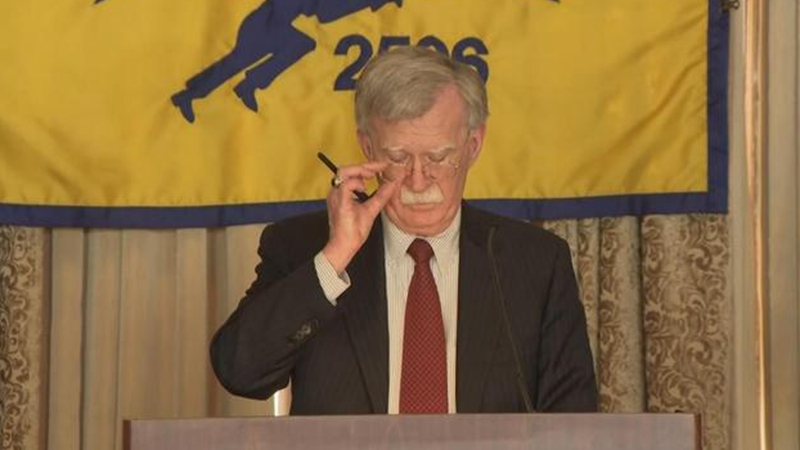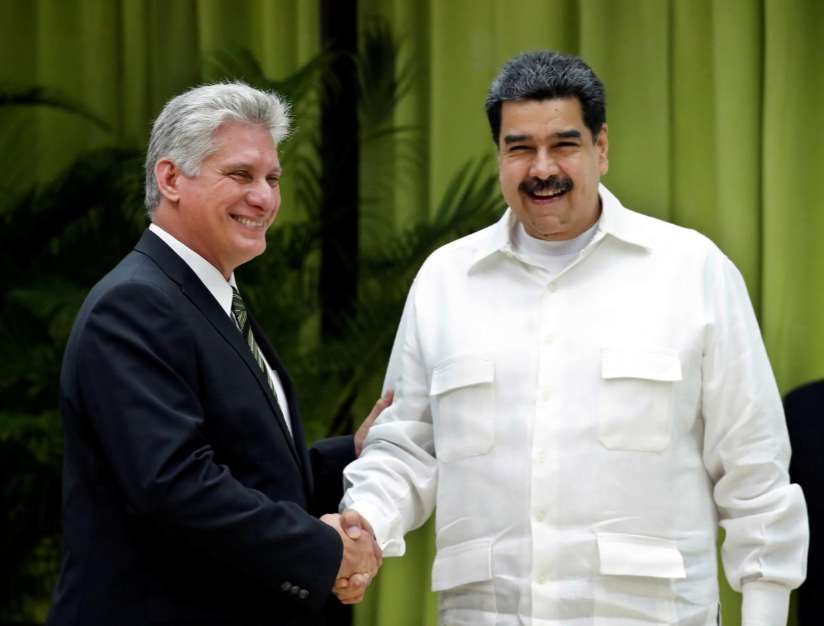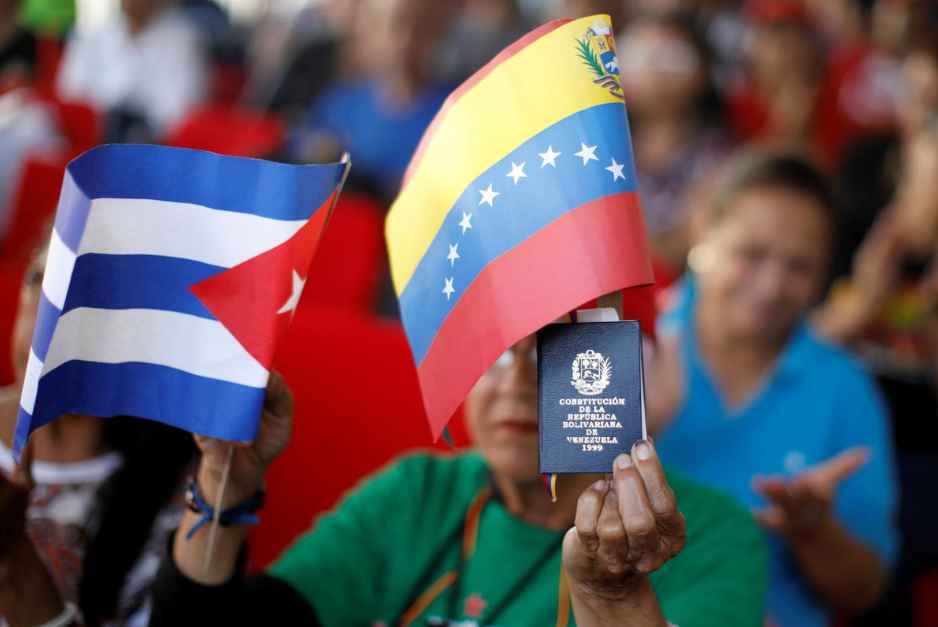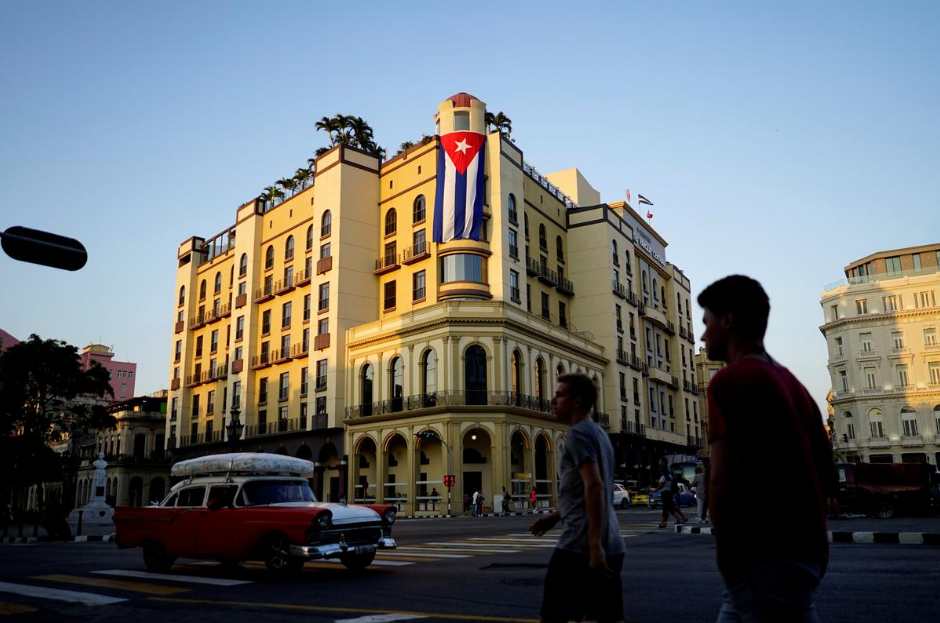
Latin America
08:55, 18-Apr-2019
U.S. imposes new punitive measures on Cuba and Venezuela
CGTN

The Trump administration on Wednesday imposed new sanctions and other punitive measures on Cuba and Venezuela, seeking to step up U.S. pressure on Havana to end its support for Venezuela's President Nicolas Maduro.
U.S. National Security Adviser John Bolton said the United States was targeting Cuba's military and intelligence services, including a military-owned airline, for additional sanctions and was tightening travel and trade restrictions against the island.
Bolton's speech followed the State Department's announcement on Wednesday that it was lifting a long-standing ban against U.S. citizens filing lawsuits against foreign companies that use properties seized by Cuba's Communist government since Fidel Castro's 1959 revolution.
President Donald Trump's decision, which the State Department said could unleash hundreds of thousands of legal claims worth tens of billions of dollars, drew swift criticism from European and Canadian allies, whose companies have significant interests in Cuba.
The European Union said it will "consider all options at its disposal to protect its legitimate interests."
Chrystia Freeland, minister of foreign affairs for Canada, which has coordinated with Washington on Venezuela, said: "Canada is deeply disappointed with today's (U.S.) announcement."

Cuba's President Miguel Diaz-Canel (L) shakes hands with Venezuela's President Nicolas Maduro during the 16th Bolivarian Alliance for the People's of Our America-People Trade Agreement Summit in Havana, Cuba, on December 14, 2018. /Reuters Photo
Cuba's President Miguel Diaz-Canel (L) shakes hands with Venezuela's President Nicolas Maduro during the 16th Bolivarian Alliance for the People's of Our America-People Trade Agreement Summit in Havana, Cuba, on December 14, 2018. /Reuters Photo
The Cuban government, which could be hindered in attracting new foreign investment, denounced it as "an attack on international law."
Cuban President Miguel Diaz-Canel responded defiantly. "No one will rip the (fatherland) away from us, neither by seduction nor by force," he said on Twitter. "We Cubans do not surrender."
Taking aim at Venezuela, Bolton said the United States was also imposing sanctions on the country's central bank to prohibit access to dollars by an institution he described as crucial to keeping Maduro in power. Bolton also announced new sanctions on Nicaragua.
In a state television address, Maduro called the sanctions "totally illegal."
"Central banks around the world are sacred, all countries respect them," Maduro said, adding that the central bank would "confront and defeat” the sanctions. "To me the empire looks crazy, desperate."
While accusing Cuba of propping up Maduro with thousands of security force members in the country, Bolton also warned "all external actors, including Russia," against deploying military assets to support the Venezuelan leader.
Rolling back Obama-era detente

A supporter of Venezuela's President Nicolas Maduro, holding a copy of the Venezuelan constitution and flags of Venezuela and Cuba, takes part in a gathering in support of his government outside the Miraflores Palace in Caracas, Venezuela, January 26, 2019. /Reuters Photo
A supporter of Venezuela's President Nicolas Maduro, holding a copy of the Venezuelan constitution and flags of Venezuela and Cuba, takes part in a gathering in support of his government outside the Miraflores Palace in Caracas, Venezuela, January 26, 2019. /Reuters Photo
Bolton, a longtime Cuba hardliner, was frequently interrupted by applause in his address to veterans of the U.S.-backed Bay of Pigs invasion on the 58th anniversary of the failed operation to overthrow Castro. His speech was a sequel to one late last year branding Cuba, Venezuela and Nicaragua a "troika of tyranny."
Bolton's announcements included further measures to roll back parts of the historic opening to Cuba, an old Cold War foe, under former president Barack Obama.
The Obama administration's approach, he said, "provided the Cuban regime with the necessary political cover to expand its malign influence."
Among the Cuba measures announced by Bolton was reinstatement of limits on U.S. citizens sending remittances to Cuba at 1,000 U.S. dollars per person per quarter. Remittances have surged since Obama started easing restrictions, becoming an important part of the economy and fueling growth of the private sector.

A Cuban flag hangs outside a hotel in Havana, Cuba, April 20, 2018. /Reuters Photo
A Cuban flag hangs outside a hotel in Havana, Cuba, April 20, 2018. /Reuters Photo
"Restricting remittances that can be sent to Cubans will directly hurt the Cuban people," said Ben Rhodes, a former Obama adviser who negotiated the 2014 diplomatic breakthrough with Havana. "This is a shameful and mean-spirited policy."
Bolton said the United States would also further restrict "non-family" travel to Cuba and cited military-owned Cuban airline Aerogaviota among five entities being added to the U.S. sanctions blacklist.
The Trump administration has previously sought to curtail Venezuela's subsidized oil shipments to Cuba.
Also on Wednesday, Bolton announced sanctions on Nicaragua's Bancorp, which he called a "slush fund," and on Laureano Ortega, a son of President Daniel Ortega for what he described as "vast corruption."
(Cover: U.S. National Security Adviser John Bolton speaks during the Bay of Pigs Veterans Association luncheon at the Biltmore Hotel in Coral Gables, Florida, U.S., April 17, 2019. /Reuters Photo)
Source(s): Reuters

SITEMAP
Copyright © 2018 CGTN. Beijing ICP prepared NO.16065310-3
Copyright © 2018 CGTN. Beijing ICP prepared NO.16065310-3